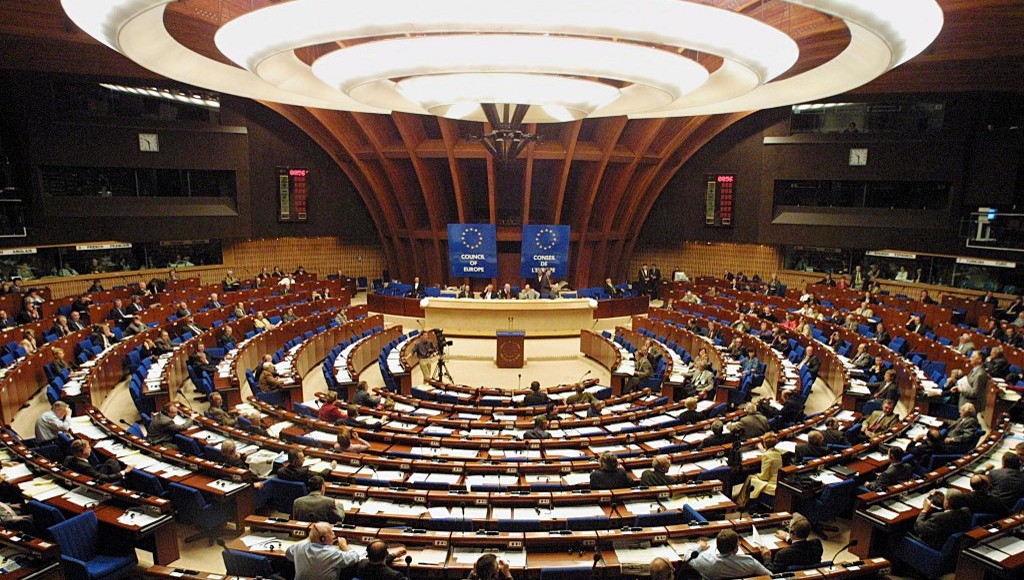In a public letter addressed to the foreign ministers of Council of Europe (CoE) member states, Amnesty International on Tuesday asked for their support for the initiation of infringement proceedings against Turkey for failure to implement a European Court of Human Rights (ECtHR) ruling about jailed philanthropist and businessman Osman Kavala, the Stockholm Center for Freedom reported.
The letter, which comes before the March 9-11 meeting of the Committee of Ministers on implementation of judgments, also asked the foreign ministers to call for “the immediate and unconditional release” of former leader of the Peoples’ Democratic Party (HDP) Selahattin Demirtaş.
The letter said the ongoing pre-trial detention of Kavala and Demirtaş despite the ECtHR’s binding judgments “reveals a judicial system unwilling to safeguard the protection of human rights.”
Kavala, a well-known figure in Turkish civil society, has been jailed since October 2017. He faces a potential sentence of life in prison for allegedly trying to overthrow the government of President Recep Tayyip Erdoğan in a July 2016 coup attempt and also is charged with espionage.
Those charges were recently combined with a case surrounding his role in 2013 anti-government protests.
He was originally acquitted in the protest case, but the decision was overturned on appeal last month.
Kavala continues to deny the charges, and rights group believes Erdoğan’s government is trying to make an example out the 63-year-old to other civil society leaders.
The ECtHR on December 10, 2019 found a violation upon reviewing Kavala’s application, calling for his immediate release. The judgment ruled that the evidence on which Kavala was detained for the Gezi protests and a 2016 coup attempt was insufficient and agreed that Kavala’s detention and the charges against him “pursued an ulterior purpose, namely, to silence him as a human rights defender.” Turkey, however, refused to abide by the ruling.
Demirtaş co-led the second-largest opposition party, the HDP, a left-wing party with majority Kurdish support, before his arrest on politically motivated charges in November 2016. He ran for president twice against Erdoğan — once while incarcerated — and is a vocal critic of the government.
Demirtaş has been in prison since then, in spite of two binding rulings in favor of his release by the ECtHR. The Turkish government still refuses to release Demirtaş, and a Turkish court on January 7 accepted a new indictment against him and 107 others calling for life sentences in relation to the Kobani protests of 2014.
The CoE’s Committee of Ministers (CM) is responsible for overseeing the implementation of judgments from the court. The infringement proceedings mentioned in the letter is initiated under article 46 (4) of the European Convention on Human Rights. When the CM considers that a state has failed to abide by a final judgment, it requires a two-thirds majority vote from all 47 member states to initiate infringement proceedings. After serving formal notice of its intention to initiate proceedings on the state concerned, the CM may then refer the situation to the court to rule on whether the state has violated its obligation to implement the court’s judgment. Therefore, as at least 31 countries must agree on the need to bring infringement proceedings, it represents a significant and serious measure.
Infringement proceedings do not explicitly provide for any sanctions to be imposed on the state concerned. If the court finds that the state has failed to implement a judgment it will return the case to the CM for consideration of any further measures to be taken (Article 46(5) of the ECHR). There are a series of ‘measures’ that the CM could take, such as issuing a decision and resolutions and holding “high level” meetings, but more concrete sanctions such as imposing fines are not available to it.
Should the infringement proceedings yield no tangible results, a state could eventually risk suspension or expulsion from the CoE.



